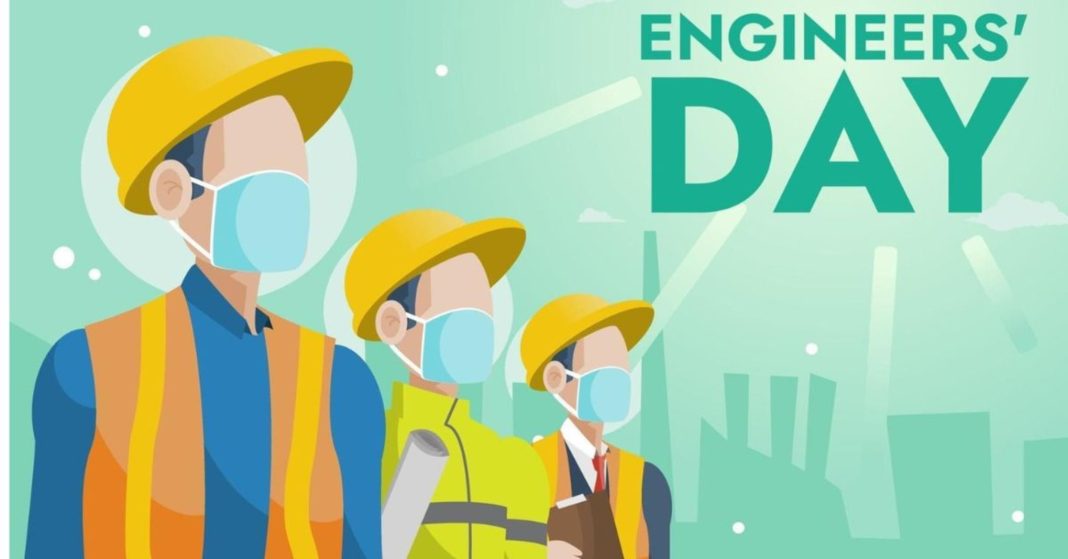National Thermal Engineer Day is a special day to appreciate the efforts of those brilliant minds who work silently behind the scenes—thermal engineers. These engineers help manage heat and temperature in machines, vehicles, computers, and even spacecraft. Their contributions make our modern world safer, more energy-efficient, and more comfortable.
Celebrated every year on July 24, National Thermal Engineer Day acknowledges how these professionals solve heat-related problems using science and creativity.
What is National Thermal Engineer Day?
National Thermal Engineer Day was established in 2015 by Advanced Thermal Solutions, Inc. (ATS). The date, July 24, was chosen because it usually falls during the hottest time of the year in many parts of the world, especially in the Northern Hemisphere.
The aim of National Thermal Engineer Day is to recognize engineers who work on systems that manage heat dissipation, cooling, thermal regulation, and energy efficiency. Their work is found in almost every industry today, from electronics to space missions.
Why Do We Celebrate National Thermal Engineer Day?
We celebrate National Thermal Engineer Day because thermal engineers:
- Ensure our laptops, smartphones, and tablets do not overheat.
- Help keep cars and airplanes running smoothly by managing engine heat.
- Make factories, power plants, and data centers more energy-efficient.
- Design air conditioners, refrigerators, and heaters to work effectively.
- Build systems to handle extreme temperatures in space exploration or military operations.
Without their knowledge and solutions, everyday machines would fail, productivity would drop, and safety would be at risk.
Who is a Thermal Engineer?
A thermal engineer is a specialist in heat and energy systems. They understand how heat flows, how it can be controlled, and how it affects materials and machines. Using principles of thermodynamics, fluid mechanics, and heat transfer, they design equipment to:
- Cool down hot components (like CPUs in computers)
- Heat up cold areas (like water heaters)
- Maintain steady temperature conditions in machines and environments
They often use simulation tools like ANSYS, MATLAB, or SolidWorks to test and improve their designs.
Fields Where Thermal Engineers Work
The work of thermal engineers is present in many industries. On National Thermal Engineer Day, it’s important to know where they contribute the most:
1. Electronics and Computing:
They design cooling systems for processors, graphics cards, and servers.
2. Automotive Industry:
Thermal engineers develop engine cooling, air conditioning, and battery thermal management systems in cars and trucks.
3. Aerospace and Aviation:
They handle extreme temperature control for rockets, satellites, and aircraft.
4. Energy Sector:
Thermal engineers optimize heat transfer in power plants, solar energy panels, and waste heat recovery systems.
5. HVAC Systems:
They design and test heating, ventilation, and air conditioning systems for buildings and large infrastructure.
Celebration of National Thermal Engineer Day in Different Ways
National Thermal Engineer Day is celebrated in various ways across the globe. Here’s how companies, schools, and individuals mark this occasion:
1. Appreciation Events in Offices:
Engineering firms organize award ceremonies and appreciation messages for their thermal teams.
2. Educational Outreach:
Schools and colleges arrange talks, science exhibitions, and live demos to show how thermal systems work.
3. Online Campaigns:
Engineering communities post articles, interviews, and videos using hashtags like #NationalThermalEngineerDay to spread awareness.
4. STEM Workshops for Students:
Interactive sessions are conducted to teach children how heat behaves and how engineers control it.
5. Open House in Labs:
Engineering labs and R&D centers allow visitors to observe thermal testing and design simulations.

Skills Required to Become a Thermal Engineer
To appreciate National Thermal Engineer Day fully, let’s understand the kind of skills thermal engineers must have:
- Strong background in science and mathematics
- Deep knowledge of physics and thermodynamics
- Ability to work with engineering software
- Understanding of material behavior under heat
- Problem-solving, creative thinking, and team collaboration
Becoming a Thermal Engineer: Educational Path
Anyone dreaming to be honored on a future National Thermal Engineer Day must take the following steps:
- Pass school subjects like Physics, Mathematics, and Chemistry with good grades.
- Pursue a Bachelor’s degree in Mechanical Engineering, Thermal Engineering, or related fields.
- Take up internships in industries dealing with heat systems.
- Specialize with Master’s degrees or certifications in thermal system design or energy efficiency.
Role of National Thermal Engineer Day in Sustainable Future
On National Thermal Engineer Day, we also recognize that thermal engineers play a huge role in:
- Fighting climate change by designing energy-saving machines
- Improving electric vehicles with better battery cooling systems
- Supporting green energy projects like solar panels and geothermal systems
- Reducing waste by capturing and reusing heat in industries
Their work is essential for building a more sustainable and greener future.
Famous Innovations by Thermal Engineers
Celebrating National Thermal Engineer Day means celebrating inventions like:
- Heat pipes used in laptops and satellites
- Phase-change cooling systems in advanced electronics
- Thermal cameras for night vision and security
- Temperature-controlled suits for astronauts and deep-sea divers
- Efficient engine radiators that increase fuel performance
How Young Minds Can Celebrate National Thermal Engineer Day
Even 5th standard students can celebrate National Thermal Engineer Day by:
- Doing science experiments on heat (like showing how black vs white colors absorb heat differently)
- Making posters or presentations about famous thermal inventions
- Watching documentaries on energy systems and space tech
- Visiting science museums or thermal labs (if possible)
Conclusion: Saluting the Builders of a Cooler and Warmer World
National Thermal Engineer Day is not just a date—it’s a reminder that science, when applied with passion and precision, can make life better. Thermal engineers are the unsung heroes who make everything from your smartphone to your space shuttle safe and functional.
As we honor these innovators on National Thermal Engineer Day, let us also inspire future generations to explore this exciting and impactful field.
Frequently Asked Questions (FAQ)
Q1. What is National Thermal Engineer Day?
National Thermal Engineer Day is observed every year on July 24 to honor the contributions of thermal engineers. These professionals work with heat and energy systems to make machines, vehicles, buildings, and electronics work safely and efficiently.
Q2. Why is National Thermal Engineer Day celebrated on July 24?
The date July 24 was chosen because it falls in one of the hottest months in many countries, especially in the Northern Hemisphere. It symbolizes the importance of heat control and the work thermal engineers do during high-temperature conditions.
Q3. Who started National Thermal Engineer Day?
Advanced Thermal Solutions, Inc. (ATS) established National Thermal Engineer Day in 2015 to appreciate thermal engineers and bring public awareness to their crucial work in engineering and industry.
Q4. Who is a thermal engineer?
A thermal engineer is an expert who designs, tests, and improves systems that manage heat. They help cool electronics, keep engines from overheating, and maintain the right temperature in factories, vehicles, and even space equipment.
Q5. What industries need thermal engineers?
Thermal engineers are important in many industries, such as:
- Electronics and IT
- Automobile and Electric Vehicles
- Aerospace and Defense
- Power Plants and Energy
- HVAC and Building Systems
- Space Missions
Q6. How can students celebrate National Thermal Engineer Day?
Students can:
- Do simple heat experiments
- Make posters or science projects on heat and cooling
- Watch videos about thermal engineering
- Visit science museums or research centers
- Learn about famous inventions that use thermal systems
Q7. What is the importance of National Thermal Engineer Day?
National Thermal Engineer Day reminds us how crucial it is to control heat. Without thermal engineers, devices could overheat, energy would be wasted, and safety would be at risk. This day helps us appreciate their hidden yet powerful role.
Q8. What skills are required to become a thermal engineer?
To become a thermal engineer, one should:
- Be strong in Math and Science
- Learn about thermodynamics and heat transfer
- Study Mechanical or Thermal Engineering
- Use software tools like ANSYS or MATLAB
- Be creative and solve problems logically
Q9. How does National Thermal Engineer Day help raise awareness?
The day promotes understanding of heat and energy systems. It highlights how thermal engineering affects daily life, from your phone’s battery to industrial machines, and encourages more students to explore this career.
Q10. Is thermal engineering related to climate change solutions?
Yes. Thermal engineers design systems that reduce energy waste, improve fuel efficiency, and help in green technologies like solar and waste-heat recovery. Their work supports a sustainable and eco-friendly future.




